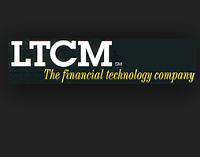Indexes - all Resources

CEO overconfidence and corporate investment. (2005)
"..studied how hubris affects CEOs' corporate investment decisions ... CEOs tend to think that under their glorious leadership the stock prices will keep going up, so they keep holding on to their shares and their options." Malmendier, U., Stanford University Tate, G., University of Pennsylvania Journal of Finance 60: 2661-2700. Overconfident CEOs who overestimate their ability to generate value ...
Written by: Malmendier and Tate.
Read moreLeadership and the psychology of power. (2005)
“…power is disinhibiting… to understand leadership behaviour it is important to consider the psychological effects of power on the leader” Joe C. Magee, Deborah. H. Gruenfeld; Stanford University Dacher J. Keltner; University of California Berkeley Adam D. Galinsky; Northwestern University In The Psychology of Leadership: New Perspectives and Research. DM Messick, & RM Kramer (eds) IB Publish...
Written by: Magee, J. C., Gruenfeld, D. H., Keltner, D., & Galinsky, A. D.
Read more
Assessing leadership style: Trait analysis. (2005)
"Seven traits have been found to be particularly useful in assessing leadership style: 1 - the belief that one can influence or control what happens. 2 - the need for power and influence Margaret G. Hermann, Cramer Professor of Global Affairs in the Department of Political Science in the Maxwell School at Syracuse University and director of that school's Global Affairs Institute Ch. 8 (p 178) of The Psychological Assessment of ...
Written by: Hermann, Margaret C.
Read moreOne from many: Visa and the rise of the Chaordic Organization. (2005)
"Hubris is by no means confined to organisations and to individuals in positions of power, and that it may also be observed within scientific and other academic disciplines. Dee Hock, founder and former CEO of the Visa credit card association. The worldwide success of VISA International, Dee Hock asserts, is due to its chaordic structure: it is owned by 22,000 member banks, which both...
Written by: Hock, Dee
Read moreImperial Hubris: why the West is losing the war on terror. (2005)
"We are losing the war on terror. Until U.S. leaders recognize the errant path they have irresponsibly chosen, our enemies will only grow stronger. Originally published anonymously, later revealed to have been authored by Michael Scheuer, a CIA veteran with 22 years service, who ran the Counterterrorist Center's bin Laden station from 1996 to 1999. "Though U.S. leaders try to convince the world of their success in fighti...
Written by: Scheuer, Michael
Read moreUnbounded irrationality: Risk and organizational narcissism at Long Term Capital Management. (2003)
“..focuses on the near collapse of the highly prestigious hedge-fund Long Term Capital Management (LTCM) in September 1998, causing widespread fears (of a) global financial meltdown. Prof Mark Stein, Chair in Leadership and Management, School of Management, University of Leicester Human Relations May 2003 vol. 56 no. 5 523-540 “This article focuses on the near collapse of th...
Written by: Stein, Mark.
Read more
From power to action. (2003)
"...investigated the hypothesis that power increases an action orientation in the power holder, even in contexts where power is not directly experienced. Galinsky, A. D., Northwestern University Gruenfeld, D.H. & Magee, J.C., Stanford University Journal of Personality and Social Psychology 85: 453-466. Three experiments investigated the hypothesis that power increases an action orientation in the...
Written by: Galinsky, Gruenfeld and Magee.
Read moreLeaders, fools and impostors: Essays on the psychology of leadership. (2003)
"The author identifies distinct leader types including the narcissist whose drive for power and prestige can bring much-needed vitality to an organisation, but whose inability to accept criticism ultimately creates a climate of subservience. Manfred F. R. Kets de Vries, Distinguished Professor of Leadership Development and Organisational Change, INSEAD, Fontainebleau, France. iUniverse. In this book of insight...
Written by: Kets de Vries, Manfred F. R.
Read moreA cross cultural exploratory study of the linkage between emotional intelligence and managerial effectiveness. (2003)
"...in low power distance cultures like as the United States and United Kingdom, self‐awareness of interactive skills may be crucial relative to effectiveness whereas in high PD cultures, such as Malaysia, self‐awareness of controlling skills may be crucial relative to effectiveness. Frank Shipper, Joel Kincaid, Denise M. Rotondo, Richard C. Hoffman, I: Salisbury University, Maryland, USA The International Journal of Organiza...
Written by: Shipper, F., Kincaid, J. F., Rotondo, D. M., & Hoffman IV, R. C.
Read more
The harder they fall. (2003) Just when they appear to have it all, A-list performers demonstrate uncharacteristic lapses in judgment or personal conduct.
"In their brilliant and rapid ascents, “star” leaders repeatedly demonstrate the intelligence, resourcefulness, and drive to go the distance. They prove adept at overcoming whatever obstacles they encounter Roderick M. Kramer Harvard Business Review - The Magazine, October 2003 Throughout the 1990s, our society seemed to have a fetish for aggressive chiefs like Enron’s Kenneth Lay, Tyco’s Dennis Kozlows...
Written by: Kramer, Roderick M.
Read more










